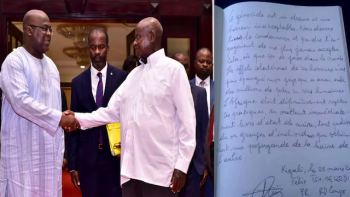Is the longest running war in the Americas finally ending? Six weeks after the previous deal was rejected by the popular vote, the two opponents , Colombia’s government and the largest rebel group in the country, known as
the Revolutionary Armed Forces of Colombia, or FARC, have, today, announced a new peace agreement. After the failed attempt, the two opponents went back to the negotiating table. Unlike the previous deal, this time, the previous president, Mr. Alvaro Uribe, whose term ended in 2010 and who was firmly opposed to the deal, arguing that the terms were too lenient for the rebels, was actively involved.
On Wednesday, August 24,2016, Colombia’s government and FARC, had reached a deal to end more than 50 years of civil war. The deal was approved in Cuba, after four years of negotiations, was facilitated by Cuban President Raoul Castro. In the prior negotiations, each side tried to propose terms that the other side found unreasonable, leading to hurdles. When they finally reached the deal, it appeared the last major guerrilla struggle in Latin America was ending. But the deal, despite the backing from the current president Juan Manuel Santos, was rejected in a referendum with a narrow margin of 50.2% against.
The deal had received a huge boost from President Barack Obama, who had called Colombian President Juan Manuel Santos to congratulate him and pledged continued support of the US Government to the Colombian government. Despite the failed deal, President Juan Manuel Santos was awarded the Nobel Peace Prize for his efforts.
This time, the strategy was to involve those opposed to the initial deal and countries, seen as independent. Norway, along with Cuba, led the negotiations and Mr. Alvaro Uribe was involved. Announcing the deal from Havana, Cuba, the two sides, said in a statement, read by diplomats from Cuba and Norway: "We have reached a new final agreement to end the armed conflict, which incorporates changes, clarifications and some new contributions from various social groups."
To be implemented, the peace agreement, unlike the previous deal, will have to be approved by Columbia's parliament. Most observers concur that this time the chances of approval and implementation are high.
If the deal succeeds, it could serve as a model for other long running conflicts in Africa, especially in the Democratic Republic of the Congo (DRC), Rwanda, Burundi, Uganda, and South Sudan
.

















